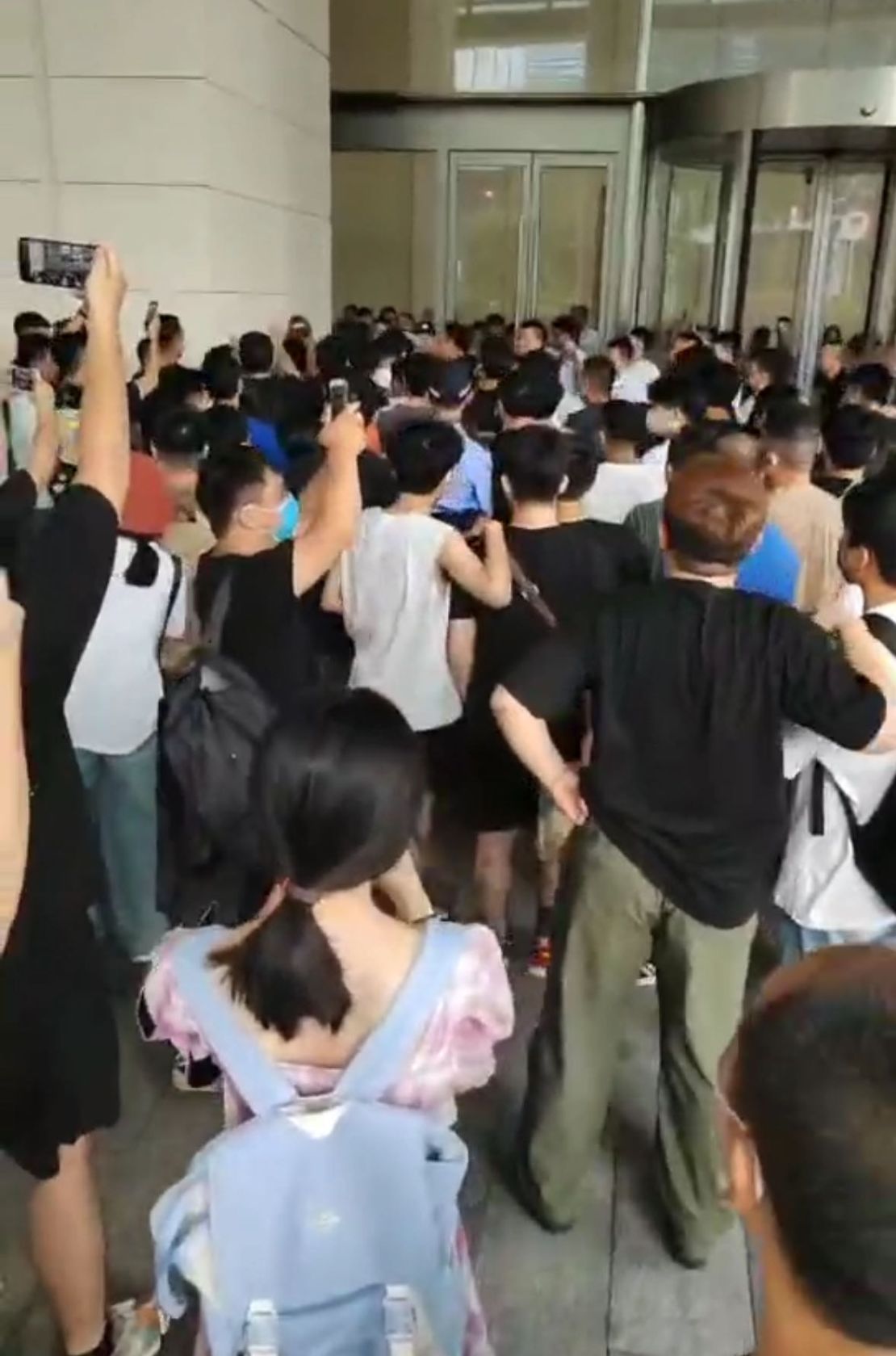Editor’s Note: Sign up for CNN’s Meanwhile in China newsletter which explores what you need to know about the country’s rise and how it impacts the world.
Online shopping site Temu has faced tough questions before about its business practices. Now it has a new problem: a backlash from independent merchants based in China who sell their products on the wildly popular rival to Amazon.
Hundreds of them staged a demonstration this week at an office affiliated with Temu in the southern Chinese city of Guangzhou. They were protesting what they called “unjust” fines levied by the company or withheld payment on goods already sold, among other complaints.
The protest, which peaked on Monday and had largely dispersed by mid-week, highlights the myriad challenges faced by Temu, owned by Chinese e-commerce giant PDD (PDD), as it continues an ambitious and expensive global expansion. The platform entered its latest market, Thailand, last month.
Temu operates as an online store, carrying cut-price merchandise from self-employed sellers. More than 100,000 of them are based in China, according to Marketplace Pulse, a research firm.
According to videos taken by a protester on Monday and seen by CNN, gathered to chant slogans demanding their money. Dozens of them managed to get into the office and staged a sit-in. The atmosphere, while loud and tense, was peaceful.
Two suppliers, who declined to be named for fear of retribution, separately told CNN that they were there to complain about what they called “disproportionately high” fines charged by Temu for poor customer service. This could include late deliveries, inaccurate product descriptions or sending the wrong products. Four sellers interviewed by CNN said the fines ranged from one to five times the wholesale price of the product.
One of them, who sells household goods, additionally claimed that the platform had also allegedly frozen about two million yuan ($276,000) in completed sales that she wanted to withdraw to pay salaries and other costs of running her business. The merchant said Temu had informed her that her products had “violated the rules” but that she didn’t understand what had gone wrong.
“I’m really desperate now. I think I’m about to lose my family and business. I really regret (joining the platform),” she said in an interview.
CNN has seen screenshots of the seller’s Temu account showing a total of just under two million yuan was ineligible for withdrawal.

A spokesperson for Temu disagreed with the scale of the protest, saying “a dozen sellers,” mostly clothing sellers who also operate on rival Shein, gathered in Guangzhou.
“They were unhappy with how Temu handled after-sales issues related to the quality and compliance of their products, disputing an amount worth several million yuan,” the spokesperson said, adding that the sellers had declined to resolve the disputes through the normal arbitration and legal channels stated in seller agreements.
“The situation is stable, and the company is actively working with the merchants to find a solution,” the person added.
With the tagline “shop like a billionaire,” Temu launched in the United States to little fanfare in September 2022. But it quickly built up a following with products like $6.50 swimsuits and 90 cent eyebrow trimmers. A few months later, it made headlines when it took out an ad at the Super Bowl.
Since its launch, the Temu app has been downloaded more than 600 million times, according to Sensor Tower, a market intelligence firm. It was the eighth most-downloaded app globally last year and remains number one in the US. Over the past year, it has expanded aggressively in Latin America, the Middle East and Southeast Asia.
Abe Yousef, senior insights analyst at Sensor Tower, told CNN that in the short run, Temu is likely to be more concerned about marketing itself to consumers than the margins it makes, a strategy that has worked well for Amazon (AMZN) and Wayfair (W).
To entice shoppers, it offers free shipping, free returns within 90 days and price adjustments within 30 days. Shein offers comparable terms.
Goldman Sachs said in June that it expects Temu to generate $45 billion in gross merchandise value, the total value of goods sold on its platform, in 2024, up from $18 billion last year and about $300 million in 2022.
Ivy Yang, a China tech analyst and founder of consulting firm Wavelet Strategy, said Temu’s robust expansion has created an “imbalance” of incentives. Consumers want better, cheaper goods faster, she said, while sellers want to sell more at higher margins and Temu wants to see recurring revenue to justify its massive marketing investment.
“Discontent has been brewing for a while now and has finally reached a tipping point. The sellers have had it,” she said. “They are angered by the lack of transparency and communication regarding hefty fines … and the crushing reality that it’s almost impossible to make a profit selling on Temu.”
A seller surnamed Peng, who sells women’s clothing on the platform, and another surnamed Mi, who sold items like fishing wire and essential oils for a two-week stint before effectively closing her online shop, told CNN that the fines made it tough to turn a profit. CNN is not giving their full names because of concerns about retribution by local authorities.
The company disputed this characterization, saying most merchants on the platform experience success and benefit from increased sales and positive customer feedback.
“While penalties are necessary to maintain a high-quality marketplace, we are committed to fair enforcement and dispute resolution” according to a Temu spokesperson.
Read the full article here




